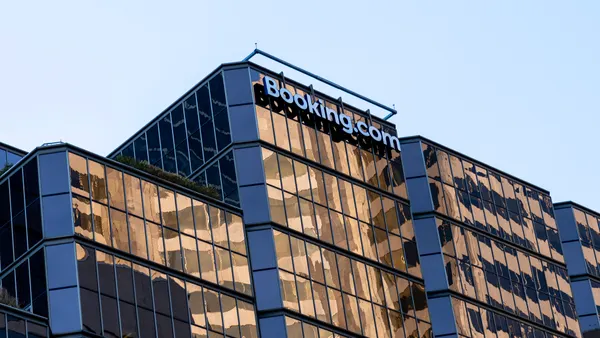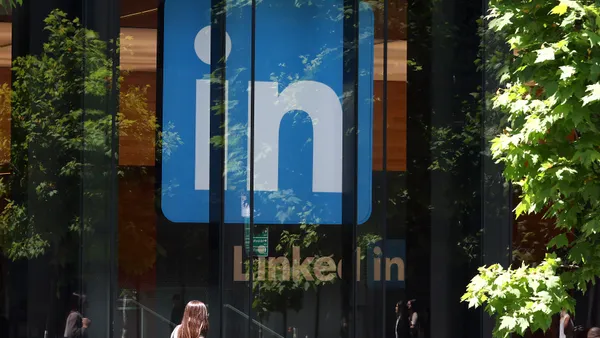Dive Brief:
- Bank of America hired 4,700 workers from low- and moderate-income communities during the last 18 months, the company announced in a news release. The bank said that 30% of its consumer business employees come from such communities and that it expects to surpass its 2018 commitment to hire another 10,000 during a five-year period.
- According to the bank, all new hires receive at least 80 hours of training through The Academy, the company's high-tech, personal training program. Nearly 40,000 employees took part in the program last year, and 10,000 more advanced their careers with the offerings, the news release said. Throughout employees' first five years on staff, they might receive more than 1,000 hours of training, the bank said.
- "Taking care of our clients starts with taking care of our teammates," John Jordan, head of The Academy, said in a press release. "The Academy gives new and existing employees the skills to succeed and a sense of pride in working here. We are pleased to be accelerating our efforts to improve the training and resources that we offer, giving our teammates the opportunity to achieve their career aspirations."
Dive Insight:
With this initiative, it appears Bank of America pairs two popular strategies to bring new workers onto its payroll. First, it targeted a specific, previously under-tapped community in its recruiting. Employers have applied this method to other groups of potential workers, including individuals with disabilities, the formerly incarcerated, older workers who aren't ready to retire and those already familiar with a company, such as former employees, customers and previous applicants.
Within these previously overlooked talent pools, it's possible that recruiters will find candidates well-equipped to fill vacancies. But it's also possible that applicants will need training to get up to speed. It seems Bank of America's second strategy tackles this problem. As more employers decrease their reliance on GPA and education credentials as an indicator of employee success, they place more importance on experience and training. Robust training programs benefit the employer, of course, but they also benefit the worker, improving the employee experience and serving as a recruiting tool. In fact, a recent Cerego study found 80% of employees who receive monthly trainings want more learning opportunities.













